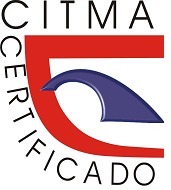A view to the Artificial Intelligence against Covid in Cuba
Keywords:
Inteligencia Artificial, COVID 19, transformación digitalAbstract
The global COVID 19 pandemic has affected all the world in 2020. Cuba has suffered due to this pandemic, despite its reduced incidence with respect to other countries due to the national efforts against this situation. Aligned with the efforts of the global science, Artificial Intelligence has been used to face COVID. This paper describes some of the contributions of the Artificial Intelligence in Cuba, particularly for medical diagnosis, pandemic forecasting and management. This view is useful not only to understand what has been done, but also to understand what it is possible to make in order to foresee the post-COVID society where the Artificial Intelligence is a relevant element for the digital transformation.
References
Ahuja, A.S., Reddy, V.P. y Marques, O. (2020). Artificial intelligence and COVID-19: A multidisciplinary approach. Integrative Medicine Research, 9(100434). doi:10.1016/j.imr.2020.100434
Barredo-Arrieta, A., Díaz-Rodríguez, N., Del-Ser, J., Bennetot, A., Tabik, S., Barbado, A., Garcia, S., Gil-Lopez, S., Molina, D., Benjamins, R., Chatilaf, R. y Herrera, F. (2020). Explainable Artificial Intelligence (XAI): Concepts, taxonomies, opportunities and challenges toward responsible AI. Information Fusion, 58, 82–115. doi:10.1016/j.inffus.2019.12.012
Bello, R., Miao, D., Falcon, R., Nakata, M., Rosete,A. y Ciucci, D. (Eds.) (2020). Rough Sets, Proceedings of the International Joint Conference IJCRS 2020, Havana, Cuba, June 29 – July 3, 2020. Lecture Notes in Artificial Intelligence, Vol. 12179, [versión electrónica de Springerlink] https://www.springer.com/gp/book/9783030527044
Bullock, J., Luccioni, A., Hoffmann-Pham, K., Nga-Lam, C. S. y Luengo-Oroz, M. (2020). Mapping the Landscape of Artificial Intelligence Applications Against Covid-19. arXiv:2003.11336v1 cs.CY.
Díaz-Canel, M. y Núñez-Jover, J. (2020). Gestión gubernamental y ciencia cubana en el enfrentamiento a la COVID-19. Anales de la Academia de Ciencias de Cuba, 10(2, especial COVID-19)
Elavarasan, R.M. y Pugazhendhi, R. (2020). Restructured society and environment: A review on potential technological strategies to control the COVID-19 pandemic. Science of the Total Environment 725 (138858). doi: 10.1016/j.scitotenv.2020.138858
Ellegood. W.A., Solomon, S., North, J. y Campbell, J.F. (2019). School bus Routing Problem: Contemporary Trends and Research Directions. Omega. doi:10.1016/j.omega.2019.03.014
García-Lorenzo, M.M., Rodríguez, Y., Ramón-Hernández, A., Bello-García, B., Filiberto, Y., Rosete, A., Caballero, Y. y Bello, R. (2020). Adquisición de conocimiento sobre la letalidad de la COVID-19 mediante técnicas de Inteligencia Artificial. Anales de la Academia de Ciencias de Cuba, 10(3)
Martínez, Y., Oquendo, H., Caballero, Y., Guerra, L., Junco, R., Benítez, I., Rodríguez, A. y Madera, J. (2020). Aplicación de la Investigación de Operaciones a la Distribución de Recursos Relacionados con la COVID-19 en Cuba. SciELO. Scientific Electronic Library Online. doi: 10.1590/SciELOPreprints.988
Park, Y., Casey,D., Joshi, I., Zhu, J. y Cheng, F. (2020). Emergence of New Disease: How Can Artificial Intelligence Help? Trends in Molecular Medicine, July 26(7), 627-629. doi:10.1016/j.molmed.2020.04.007
Pérez-Pérez, A.C., Sánchez-Ansola, E., Rosete, A. (2020). Una Solución al problema de planificación de rutas de autobuses escolares con flota homogénea y selección de paradas. Revista Ingeniería, Universidad Distrital Francisco José de Caldas, (aceptado, próxima publicación).
Pérez-Rodríguez, R., Curra-Sosa, D.A, y Almaguer-Mederos, L.E. (2020). Análisis preliminar de modelos SIRD para la predicción de la COVID-19: caso de la provincia de Holguín. Anales de la Academia de Ciencias de Cuba, 10(2, especial COVID-19)
Raju Vaishya, R., Javaid, M., Khan, I. H. y Haleem, A. (2020). Artificial Intelligence (AI) applications for COVID-19 pandemic. Diabetes & Metabolic Syndrome: Clinical Research & Reviews 14, 337-339. doi:10.1016/j.dsx.2020.04.012
Ramón-Hernández, A., Bello-García, B., Bello-García, M., García Lorenzo, M. M. y Bello-Pérez, R. (2020). Análisis de escenario utilizando técnicas de inteligencia artificial para estudiar el posible comportamiento de la COVID-19. Anales de la Academia de Ciencias de Cuba, 10(2, especial COVID-19)
Ramón-Hernández, A., García-Lorenzo, M.M. Simón-Cuevas, A., Arco, L. y Serrano-Guerrero, J. (2019). A semantic approach for topic-based polarity detection: a case study in the Spanish language. Procedia Computer Science, 162, 849–856. doi:10.1016/j.procs.2019.12.059
Shaikh, F., Brun-Andersen, M., Sohail, M. R., Mulero, F., Awan, O., Dupont-Roettger, D., Kubassova, O., Dehmeshki, J., y Bisdas, S. (2020). Current Landscape of Imaging and the Potential Role for Artificial Intelligence in the Management of COVID-19, Current Problems in Diagnostic Radiology, 000, 1-6, doi: 10.1067/j.cpradiol.2020.06.009
Sipior, J.C. (2020). Considerations for development and use of AI in response to COVID-19. International Journal of Information Management. doi:10.1016/j.ijinfomgt.2020.102170
Velázquez-Pérez, L. (2020). La COVID-19: reto para la ciencia mundial, Editorial. Anales de la Academia de Ciencias de Cuba, 10(2, especial COVID-19)
Downloads
Published
How to Cite
Issue
Section
License
Copyright (c) 2020 Rafael Bello, María Matilde García Lorenzo, Alejandro Ramón-Hernández, Beatriz Bello-Garcia, Marilyn Bello-Garcia, Yaile Caballero, Julio Madera-Quintana, Yanela Rodríguez, Yaima Filiberto, Yoan Martínez, Alfredo Simón Cuevas, Eduardo Sánchez-Ansola, Ana Camila Pérez-Pérez, Alejandro Rosete Suárez

This work is licensed under a Creative Commons Attribution-NonCommercial 4.0 International License.













